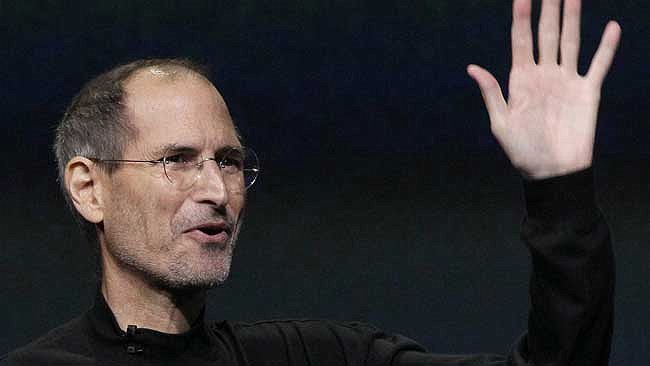Late Apple chief Steve Jobs threatened to slap Palm with patent lawsuits to prevent the tech rival from hiring away its talent, according to court documents available on Wednesday.

Unsealed copies of an email exchanged between Jobs and then Palm president Edward Colligan in 2007 were among evidence in a lawsuit charging Silicon Valley giants secretly agreed not to "poach" workers from rival firms.
Colligan referred to a phone call in which Jobs proposed the companies not hire each other's employees and suggested that if Palm did not agree to such a pact, Apple would embroil it in costly patent lawsuits.
"Your proposal that we agree that neither company will hire the other's employees, regardless of the individual's desires, is not only wrong, it is likely illegal," Colligan said in a copy of an email message to Jobs dated August 24 of 2007.
Colligan's message went on to argue that patent litigation was not the answer because both companies would wind up "paying a lot of lawyers a lot of money".
In an email response, Jobs said, "This is not satisfactory to Apple".
"I'm sure you realize the asymmetry in the financial resources of our respective companies when you say 'we will both just end up paying a lot of lawyers a lot of money'", Jobs said in his reply.
"My advice is to take a look at our patent portfolio before you make a final decision here."
Palm never agreed to the deal, Colligan said in a sworn statement that accompanied copies of email messages entered as exhibits in the case.
A smartphone pioneer, Palm failed to capitalize on its position in the market and was bought by computer maker Hewlett-Packard in 2010.
US District Court Judge Lucy Koh has cleared the way for Apple chief Tim Cook, Google chairman Eric Schmidt and Intel head Paul Otellini to face questioning in the "no-poaching" lawsuit set for trial in November.
During a hearing last week in her courtroom in the California city of San Jose, Koh referred repeatedly to email evidence that included a request in 2007 by then Apple chief Jobs that Google stop recruiting Apple workers.
While Cook was not mentioned in the email messages, it was reasonable to expect that his position as chief operating officer included being kept apprised of issues involving employee expenses, the judge said.
Cook took over as Apple chief in 2011 after Jobs stepped down due to a battle with cancer, which claimed his life.
Lawyers representing the plaintiffs have asked Koh to grant them class-action status to represent all workers who may have been affected.
The civil suit filed in 2011 followed the settling of restraint of trade litigation by the US Justice Department due to a "no-poaching" agreement involving an array of Silicon Valley companies.





